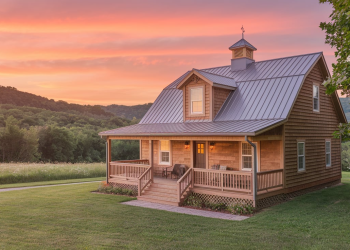Table of Contents

Marriage marks the beginning of a new chapter, and for many couples, purchasing a home together is one of the first major decisions they’ll make. The excitement of house hunting can sometimes overshadow important considerations that could impact your financial future and marital harmony. Before signing on the dotted line, here are ten crucial factors newly wed couples should carefully evaluate.
Long-Term Vision Alignment
The foundation of a successful home purchase begins with ensuring both partners share similar long-term goals. Consider where you see yourselves in five, ten, or fifteen years. Are children part of your future plans? Will either of you potentially change careers or pursue further education? Does one of you dream of eventually relocating to another city or even country?
Misalignment in these fundamental life directions can lead to tension down the road. A home that perfectly suits your current lifestyle might become impractical as your family grows or career paths evolve. Take time to have honest conversations about your individual and shared visions before committing to a property that may not accommodate your future needs.
Financial Transparency and Budget Reality
Marriage combines not just lives but finances as well. Before house hunting, have comprehensive discussions about your financial situations, including income, savings, debt, and credit scores. Creating a realistic budget that accounts for all homeownership expenses is essential.
According to the website, https://butlerrealestate.com/our-team/, many first-time buyers focus solely on mortgage payments while overlooking additional costs like property taxes, homeowners insurance, utilities, maintenance, and homeowners association fees. These expenses can add 30-40% to your monthly housing costs. Establish a budget with sufficient buffer for emergencies and agree on what percentage of your combined income should go toward housing expenses.
Location Considerations Beyond Today
The old adage “location, location, location” holds true, but for newlyweds, this means evaluating neighborhoods through a future-oriented lens. Consider commute times to both partners’ workplaces, proximity to family support systems, school district quality (even if children aren’t immediate plans), and neighborhood safety.
Also assess the area’s growth trajectory. Is it up-and-coming with increasing property values, or showing signs of decline? Research local development plans, as nearby construction projects can significantly impact your property’s future value and your quality of life. A bargain home in a neighborhood that doesn’t support your lifestyle needs may prove costly in non-financial ways.
Balancing Wants vs. Needs
Newly married couples often struggle distinguishing between housing features they want versus those they truly need. Create separate lists of must-haves and nice-to-haves, then combine and prioritize them together. This exercise reveals what you both value most and where you’re willing to compromise.
Remember that your first home likely won’t be your forever home. Prioritize structural soundness, adequate space for current needs, and location over cosmetic features that can be changed. A home with “good bones” in the right location typically offers better long-term value than a perfectly staged property with fundamental flaws.
Joint Ownership Considerations
The way you title your home has significant legal and financial implications. Options include sole ownership (one spouse), joint tenancy with rights of survivorship, tenancy in common, or community property in certain states. Each approach affects what happens to the property if one spouse dies or if the marriage ends.
Consult with both a real estate attorney and financial advisor about the best ownership structure for your specific situation, especially if one partner brings significantly more to the down payment or if substantial assets are involved. These conversations may feel uncomfortable, but they establish important protections for both parties.
Mortgage Pre-Approval Strategy
Securing mortgage pre-approval before house hunting not only strengthens your position as serious buyers but also provides a reality check on what you can afford. However, newlyweds should strategize whose name(s) will appear on the mortgage application.
If one partner has significantly better credit, applying solely in that person’s name might secure better terms. However, this approach limits the income considered for qualification purposes. Alternatively, applying jointly leverages both incomes but may result in higher interest rates if one spouse has poor credit. Discuss these tradeoffs with mortgage professionals before deciding.
Home Style Compatibility
Housing preferences often reflect deeply held values and past experiences. One spouse might prioritize a low-maintenance condominium while the other dreams of a single-family home with a yard. These preferences aren’t merely aesthetic—they reflect different lifestyle priorities and time commitments.
Instead of viewing these differences as obstacles, use them as opportunities to understand each other better. Consider renting different home styles before buying to test compatibility with your actual lifestyles. Many couples discover their theoretical housing preferences differ from what works in practice.
Future-Proofing Your Investment
As newlyweds planning a future together, consider how adaptable your potential home will be to life changes. Features like a floor plan that can accommodate a home office, flex spaces that could become nurseries, accessibility features for aging in place, or an income-generating basement apartment provide valuable flexibility.
Additionally, researching a property’s resale potential protects your investment. Highly customized homes tailored to specific tastes typically present greater resale challenges than those with broader appeal. Balance personal preferences with market considerations for maximum financial security.
Renovation Compatibility and Skills
Home renovation projects strain even the strongest marriages. Before purchasing a fixer-upper, honestly assess not just your combined DIY skills but also your compatibility in making design decisions and handling project-related stress.
Some couples thrive on collaborative renovation projects while others discover fundamental differences in decision-making styles, aesthetic preferences, or tolerance for living in construction zones. Start with smaller projects before committing to major renovations to test your renovation compatibility.
Emergency Fund Prioritization
After dedicating savings to a down payment, many newlyweds find themselves house-rich but cash-poor. While homeownership represents an important asset, maintaining liquid emergency savings remains crucial for financial security.
Ideally, retain 3-6 months of expenses in an easily accessible emergency fund even after closing. If purchasing a home would completely deplete your savings, consider delaying the purchase or adjusting your target price range. The security of knowing you can handle unexpected expenses provides peace of mind that benefits your marriage and homeownership experience.
Purchasing a home as newlyweds offers an exciting opportunity to build your future together. By approaching this decision with thoughtful consideration of these ten factors, you’ll not only find a property that meets your needs but also establish healthy communication patterns that will serve your marriage well beyond the closing table.







